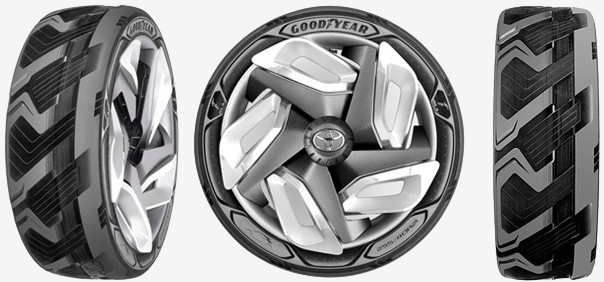
Mobile World Congress and the Game Developers Conference aren’t the only major trade shows in March that have the tech world watching. Over at the Geneva International Motor Show, Goodyear is showing off a concept tire that could eliminate the vehicle range anxiety that many motorists have with electric cars.
Known as BHO3, the tire uses thermoelectric and piezoelectric materials built into the tread to convert heat energy generated by the friction of the tire as it rolls across the ground into electricity. The tire also features darkened, textured patches designed to absorb additional heat and light to bolster the energy it creates.

Goodyear didn’t reveal any other details about the tire such as how much electricity it might generate or when it may hit the roads.
Electric vehicle range anxiety is a real concern, especially for drivers that have long commutes or those without public recharging stations nearby.
Last year, Audi revealed it was developing a system to capture energy from mechanical friction created by a car’s suspension. As Audi R&D chief Dr. Ulrich Hackenberg noted, dampers can reach upwards of 125 degrees when working hard on a bumpy road. That energy is wasted as heat into the atmosphere.
While one of these methods alone may not be enough to quell concerns, a vehicle that takes advantage of multiple features like this could dramatically extend the range of an electric vehicle.
https://www.techspot.com/news/59953-goodyear-heat-gathering-concept-tire-aims-charge-electric.html